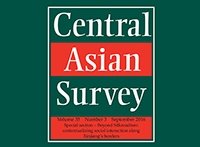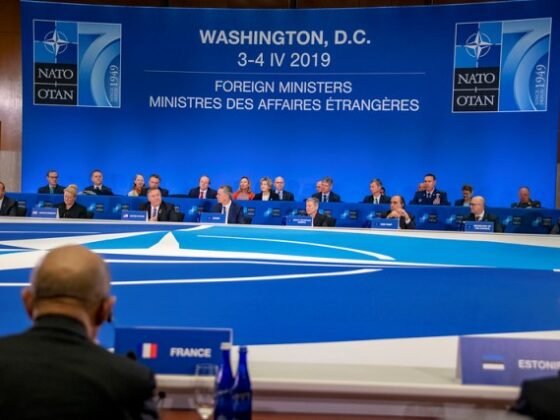(Central Asian Survey) (Co-authored with Dylan Royce) Abstract: Though Central Asia is often studied through the prism of its relationships with external powers, research on local public perceptions of these different actors has largely been overlooked. The literature on Kazakhstanis’ perceptions of their neighbours, for instance, is scarce, and mostly focused on analysis of official discourse on Kazakhstan’s multi-vector policy, with little exploration of how this is received, appropriated or refuted by the population. On the basis of Gallup data spanning the last decade, and several other surveys, we test most of the main hypotheses usually advanced to explain attitudes to the US and Russia – age, ethnicity and access to information – and draw five main conclusions: (1) Kazakhstanis are not defined by an exclusive pro-US/pro-Russian dichotomy; (2) they nevertheless largely choose Russia over the US if forced to pick; (3) age does not have a significant effect on foreign policy attitudes; (4) ethnicity does affect some of the attitudes under consideration, but its effects are not large enough to produce markedly different opinions among ethnic Kazakhs and ethnic Russians in aggregate; and (5) consumption of media from Russia and access to non-governmental and Western sources of information do not seem to have significant effects on the attitudes under consideration.
Read More © Central Asian Survey











